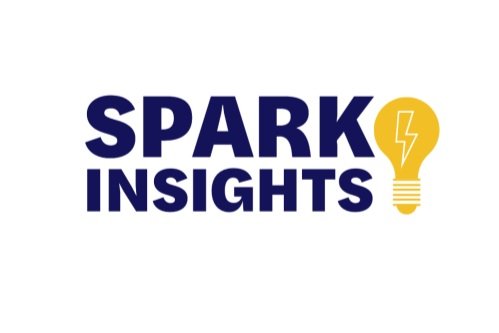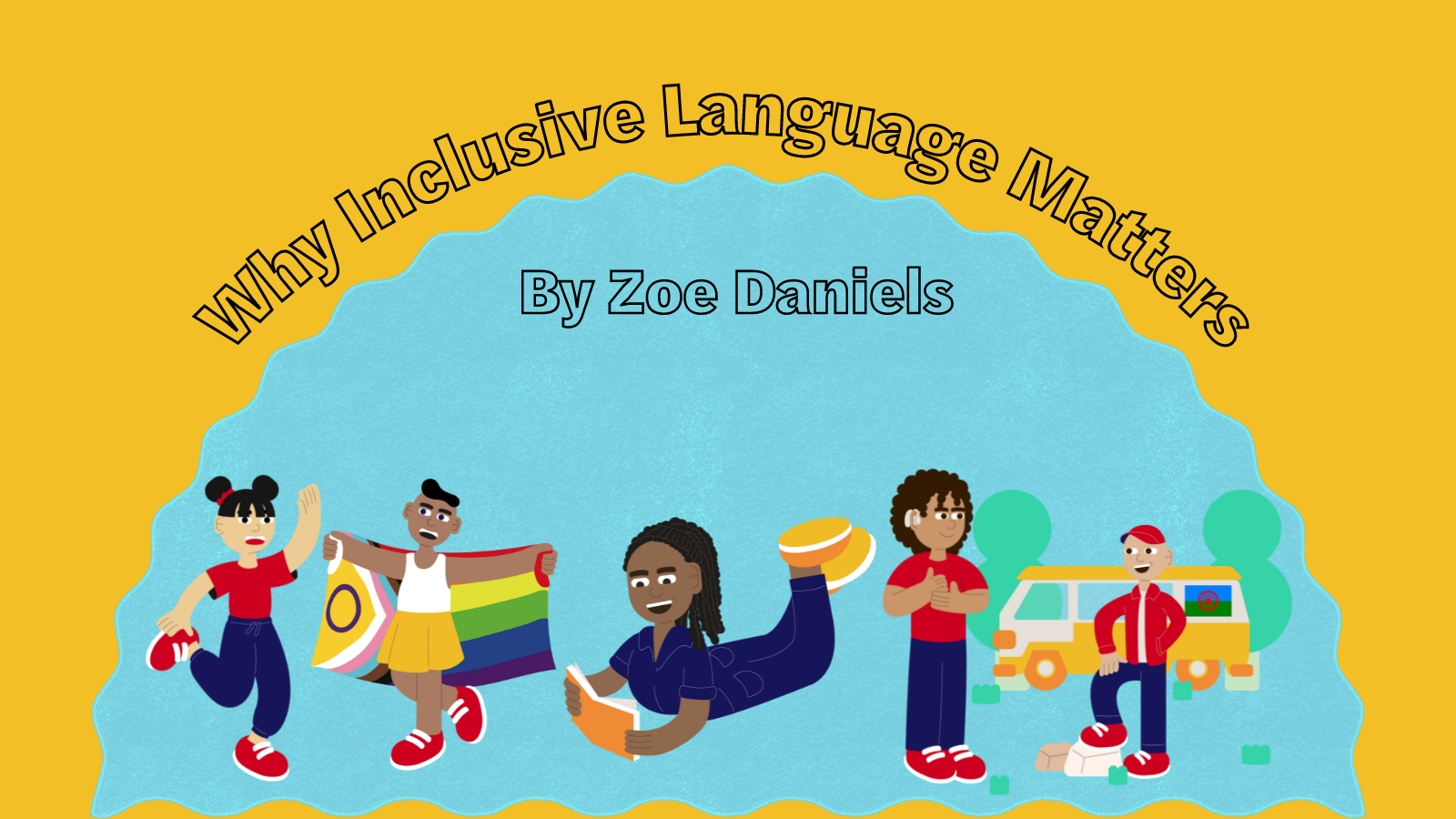Why Inclusive Language Matters
In this article, Zoe Daniels, They/Them, (Brand and Engagement Lead, Spark Insights) explores the role of inclusive language and why it matters in the world we live in today.
The Importance of using inclusive language
Words help us communicate with one another, allowing us to relate and understand each other as human beings.
The words we use can also signal to communities who experience marginalisation that we see them beyond the label that society has forced upon them. Some of these labels include:
BAME
Person of Colour
Ethnic Minority
The above terms are designed to work as a catch all, when in fact, people within those communities are not identical, they have varying identities that need to be recognised. If we fail to do so we lose sight of what people's needs are.
Inclusive language helps to communicate that they are safe and that they belong. More so, it helps to increase confidence and establishes empathy and understanding.
At Spark Insights we strive to use inclusive language and regularly update our brand guidelines. Because we live in a globalised world and within a multicultural society, language chops and changes over time, the right word is not a binary or static thing, and so our approach to the language we use changes as the words themselves do.
Language tends to change at such a quick rate that it’s hard to keep up! That’s why at Spark Insights we check in with one another on a regular basis. We try to be a step-ahead when it comes to the use of inclusive language, because our collective works with communities experiencing marginalisation, whether they’re racialised, disabled, LGBTQIA+, living in poverty and/or people seeking sanctuary amongst other factors.
Person-first language
A lot of the language we use is rooted in care, meaning we tend to utilise person-first language. Using this kind of language is important because you’re recognising that this community or person's identity isn’t solely made up of their situation. This kind of language uses a human centred approach when discussing certain communities. For example, in this article rather than saying marginalised communities we say communities experiencing marginalisation. Because marginalisation is the phenomenon that is happening to us rather than who we are.
Another example is the word refugee, at Spark Insights we say people seeking refuge or sanctuary. This acknowledges that you are a full person, and the trauma you have had to endure does not define you.
Dropping the term BAME
As our work is rooted in anti-racism and inspired from personal lived experience, we endeavour to use the language that best describes us. We understand that that may change and doesn’t resonate with every single member of our community. But, to ensure that we are in touch with our community, we engage members to find out what language resonates with them. This is how we came to drop the term BAME at Spark & Co.
We held a focus group with racialised people to see what their preferred term was. Ultimately they said “racialised” best described them. This is because it describes the process in which a group of people are defined by their race. Processes of racialisation begin by attributing racial meaning to people's identity. An example of this is how they relate to social structures and institutional systems. Including housing, employment, education, health and justice amongst other things.
The process of decolonisation
A lot of the terms we have mentioned here are working definitions and may change on a monthly and/or yearly basis. The word racism is a good example of this. Our understanding of racism beyond academia used to be very limited. Most people thought that racism was mainly interpersonal and that there was such a thing as reverse racism. There are still some people who believe this to be true. But we know that this is not the case. Recent events like the murder of George Floyd and the subsequent handling of the Black Lives Matter protests in the United States and United Kingdom, and the increasing hostile environment in Europe have taught us that racism is often systemic, institutionalised and is a question of power.
When discussing race we try to be as specific as possible. Choosing terms that the community relates to rather than what the Government prefers. A lot of the terminology that we use has undergone a process of decolonisation. Involving the removal of words that have an association with colonialism. This includes terms like the West Indies, invented by Europeans to differentiate between the Caribbean and South Asian and SouthEast Asian, once known as the Indies.
Why we use the terms we do
The Disabled community
Sometimes people can go overboard when trying to be sensitive towards groups experiencing marginalisation. For example not wanting to mention the thing that is contributing to their marginalisation.
Although we have disabled people within the team we don’t always get it right. A prime example of this is when we used the phrases “people with disabilities” and “different abilities”. We have since learned that both these phrases can be offensive.
Different abilities is a derogatory phrase as it puts the attention on ability rather than disability. Pretending that a health condition is a set of interesting abilities and ignoring the disabling condition isn’t something that many people living with developmental, mental, physical or other health conditions are able to do. This is why the term comes across as patronising. It also treats the term ‘disabled’ as though it’s negative and something that you can't mention or talk about.
We tend to veer away from the term people with disabilities. Although it is person-first language, which we favour. It focuses on ability and not disability, and also ignores the fact that people are often disabled by an ableist society.
Inclusivity means abandoning harmful words that we’ve become accustomed to as a society. This includes terms like crazy, lame, insane and stupid. This is because all these terms have a derogatory meaning. Historically they were used to describe people who were mentally unwell.
The LGBTQIA+ [Lesbian, Gay, Bi-sexual and/or Bi-romantic, Transgender, Queer and/or Questioning, Intersex and Asexual amongst others] community
Terms within the LGBTQIA+ community change at a rapid pace. This can be hard to keep on top of, especially if you are not from the community and aren’t engaging with the community on a regular basis.
We use the acronym LGBTQIA+ rather than LGBTQ because our understanding of sexuality and gender identity is ever expanding. For example, the Transgender community may include non-binary, gender non-confirming and/or gender diverse people, but, not all those people identify as Transgender. Part of being inclusive is also recognising that one size does not fit all, and whilst some people may like these terms other people may not. The best thing to do is try and gauge what term is most appropriate. Take into consideration your audience and if you're a company or organisation trying to be more inclusive, engage your audience by running focus groups or questionnaires.
Gender Inclusive Language
Another term which we like using is “people with cervixes” which is inclusive of transgender people and women. It recognises the fact that not all women have cervixes. This also takes into account the historical nature in which the gender binary was born. Much like race, historians, activists and social commentators alike have noted that the gender binary is a social construct and has been used in the past to instil a gender hierarchy. In which, people with cervixes have less rights than people with penises.
“Genders experiencing marginalisation” is another term we use to avoid falling within the binary. This term recognises any gender who is impacted by social structures and institutional systems. It is also more inclusive of non-binary, gender non-confirming and/or gender diverse people.
At Spark Insights we encourage people to state their pronouns. But this is starting to become a bone of contention within the LGBTQIA+ community because if only a few use it it can sometimes disenfranchise genders experiencing marginalisation. That is why we encourage all the people we work with to state their pronouns. It’s also important to recognise that you can’t and shouldn’t assume one’s gender. That's one of the main reasons we encourage people to state their pronouns whenever they are introducing themselves to someone new.
Pronouns aren’t optional because they are part of almost every single language. Each and every person has a pronoun, whether they like it or not. It’s like having a name. But the beauty of it is that you get to choose what your pronouns are according to how you want to relate to the world.
Our experience
As we’ve said previously we don’t always get it right. In fact, no one rarely does. However, we will always try our best to ensure that we are as inclusive as possible. We do this by listening to different members of our community. Ensuring that we hear different perspectives and making sure our use of language is informed by the communities we are trying to uplift.
A prime example of this is when we cited an article whereby the author said “BAME is Lame”. Not only did this contain harmful language with roots in ableism but it also contained a term which often equates all people experiencing marginalisation as having the same set of experiences. A member of our community reached out to let us know that Lame wasn’t appropriate, and upon hearing this we acted on it straight away, removing the article from our piece.
As a collective we bring with us a variety of different experiences, thus, different perspectives. We are from different backgrounds in regards to our heritage, race, culture, gender identity, sexuality, disability. We continuously challenge one another to be better and more inclusive with the language that we use.
We learn from one another, our community, our stakeholders and every participant we’ve ever had involved in a research project.
If you would like to work with us and learn more about how to make your workplace more inclusive, get in touch with Zoe at zoe@sparkandco.co.uk today and if you would like access to more resources like this sign up to our newsletter now.


